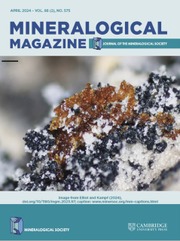
Melanie Ray during her happiest days on the research cruise to Ritter Island.
Melanie Ray passed away on September 5th 2018 after a short but brave battle with cancer. She was an active member of the Volcanic and Magmatic Studies Group (VMSG) and a member of the Mineralogical Society of Great Britain and Ireland. Her most recent contribution had been a poster and oral presentation at the VMSG meeting in Leeds in January 2018. She was a PhD student at Birkbeck University of London, studying the collapse of the Ritter Island volcano in Papua New Guinea.
Melanie was born in Epsom, Surrey on July 6th 1973. She attended Woodroffe School where she specialised in languages and was a competitive swimmer. She left the UK after completing her “A” levels to go to Austria for a few months with the intention of improving her knowledge of German but decided to stay and live in Austria. She lived in Vienna for the rest of her life, eventually working in the IT support team at the Organisation for Co-operation and Security in Europe (OSCE).
Her interest in the natural world led her to start studying for a BSc in Geology by distance learning at Birkbeck University of London in 2007. She was a part-time student, continuing to work for the OSCE while studying geology. Melanie was eager to undertake fieldwork and, despite living outside the UK, she attended all available field classes at Birkbeck. She was a natural field geologist, with excellent observational skills and scored high marks on all her assessed fieldwork modules. She mapped in the Zillertal in the Austrian Alps for her BSc ‘Map and Thesis’ module and achieved a 1st class Honours degree from her studies in 2011.
Among her scientific interests, Melanie was fascinated by landslides and volcano collapse. She registered for an MPhil at Birkbeck and started to study the collapse of Ritter Island in a remote part of the south Pacific. Her language skills – and her ability to read the old Gothic script – came in very useful in translating the records made by German colonial officials and ships’ captains about the eruptions of the island and the tsunami generated by its collapse. She made the first complete translations of a number of these documents, enabling a better understanding of their reliability and context, and carried out extensive searches for other relevant documents that also enabled a better understanding of the political and cultural context of the German records of the event.
She also investigated the mineralogy and petrology of lavas from the Ritter volcano, and presented her work regularly at VMSG meetings, and in 2014 at the annual European Geoscience Union meeting in Vienna. Here her work drew the attention of scientists from the Helmholtz Centre for Ocean Research (GEOMAR) in Kiel, Germany, who were planning a research expedition to investigate the underwater deposits formed by the Ritter collapse. They invited Melanie to participate in the cruise, because of her expertise on the volcano and its products. The cruise of the SONNE in late 2016 was a highlight of Melanie's scientific life, and the subject of one of her presentations at VMSG. She was supported financially in part by a grant from the Emily Paige Short Fund at Birkbeck.
In addition to her scientific endeavours, Melanie was a keen supporter of conservation efforts for whales and dolphins. She also spent time helping destitute refugee families who had arrived in Vienna. She was committed to equality for the LBGT community and strongly opposed the rise of right-wing politicians in Austria. She also had a keen sense of humour, for which she will be greatly missed by her friends and colleagues. She is survived by her wife Antje Lewis and stepson Alexander and her dog Timon.


